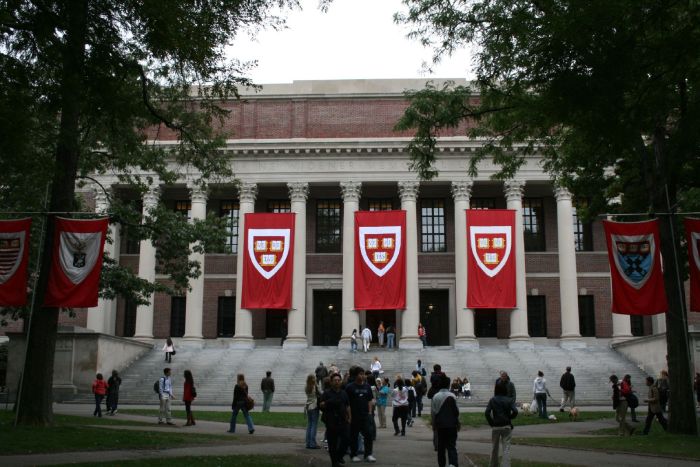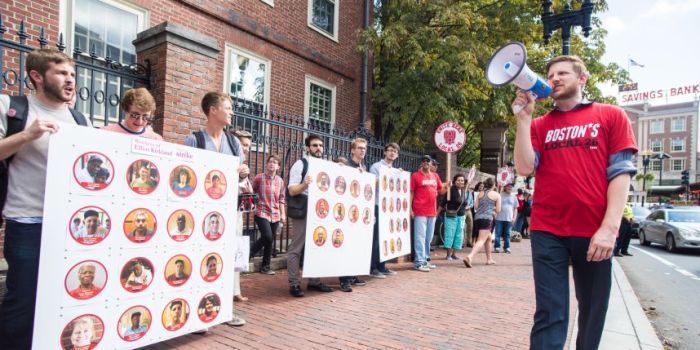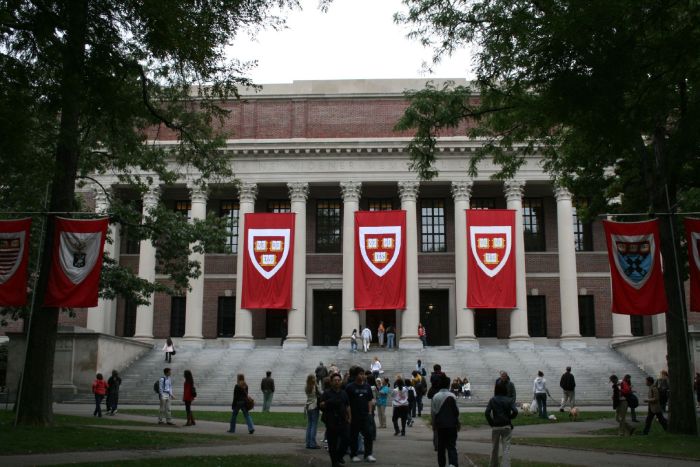Up to 40 percent of all food produced in the U.S. is wasted—the equivalent of about 133 billion pounds and more than $160 billion each year, according to the USDA. It ends up in landfills rather than feeding those who need it. David Rodriguez wants to change that. His new app called Food for All allows users to connect with restaurants that are about to toss end-of-day food away and buy that food at a lower cost—up to an 80 percent discount. That way, food is kept out of the dumpster and people can more easily afford a meal. Rodriguez, CEO and founder of Food for All,is originally from Mexico. His family there worked in the hospitality industry, and from a young age hebecame aware of all the food that restaurants, hotels and other businesses throw away, he said. “That’s where the idea started from,” he said. “Our mission is to make more social awareness about food waste.”
Rodriguez pitched his idea to the Center for Health and the Global Environment within Harvard’s T.H.Chan School of Public Health. An accelerator program there has been advising Rodriguez and his team on their business plan and model while they build an initial prototype. Food for All is testing its pilot in Boston and then hopes to expand to New York, where there’s a large number of restaurants and, thus, food waste. They also recently launched a Kickstartercampaign to raise money to help get the app off the ground. “Food for All” isn’t trying to replace donation centers, Rodriguez said. He understands the importance of nonprofit organizations picking up extra food, but they don’t completely fix the food waste issue, he said. “They don’t come every day. There are logistical expenses involving transportation, paid labor,” he said. “We are not fighting with the nonprofit organizations, we’re just another option for the restaurant.”
This app wants to help reduce food waste while saving you money
On days when a restaurant doesn’t have a scheduled pickup from a donation center, Rodriguez suggests they turn to Food for All, especially since those businesses have to pay more when they’re having more trash collected.
App users would have to pick up their food and it wouldn’t be available until the restaurant is about to close.
Some restaurants admittedly had a few reservations about participating. They were concerned about losing customers who might wait until the last hour to purchase the food at a cheaper price. The pilot program in Boston is addressing those concerns. The app now shows just simple options rather than a complete menu, so customers can’t put what they specifically want “on hold” for later.
“When we took out the menu from the app, the users were only able to see but not choose specifically [things like] a hamburger, salad, pizza,” Rodriguez said. “This way we’re able to differentiate from the normal customers … to target people that are environmentally conscious.”
Food for All’s Kickstarter has until Dec. 8 to raise the money to finish the app and business model before bringing it to other cities. Rodriguez expects the app to hit New York sometime in 2017.
“I’m really excited to see all the pieces coming together, merely because this has been a big problem for many years,” he said. “Many nonprofit organizations are trying to target this, but it’s not a fully sustainable system. That’s why we’re excited to bring in the startup world to save the environment.”























